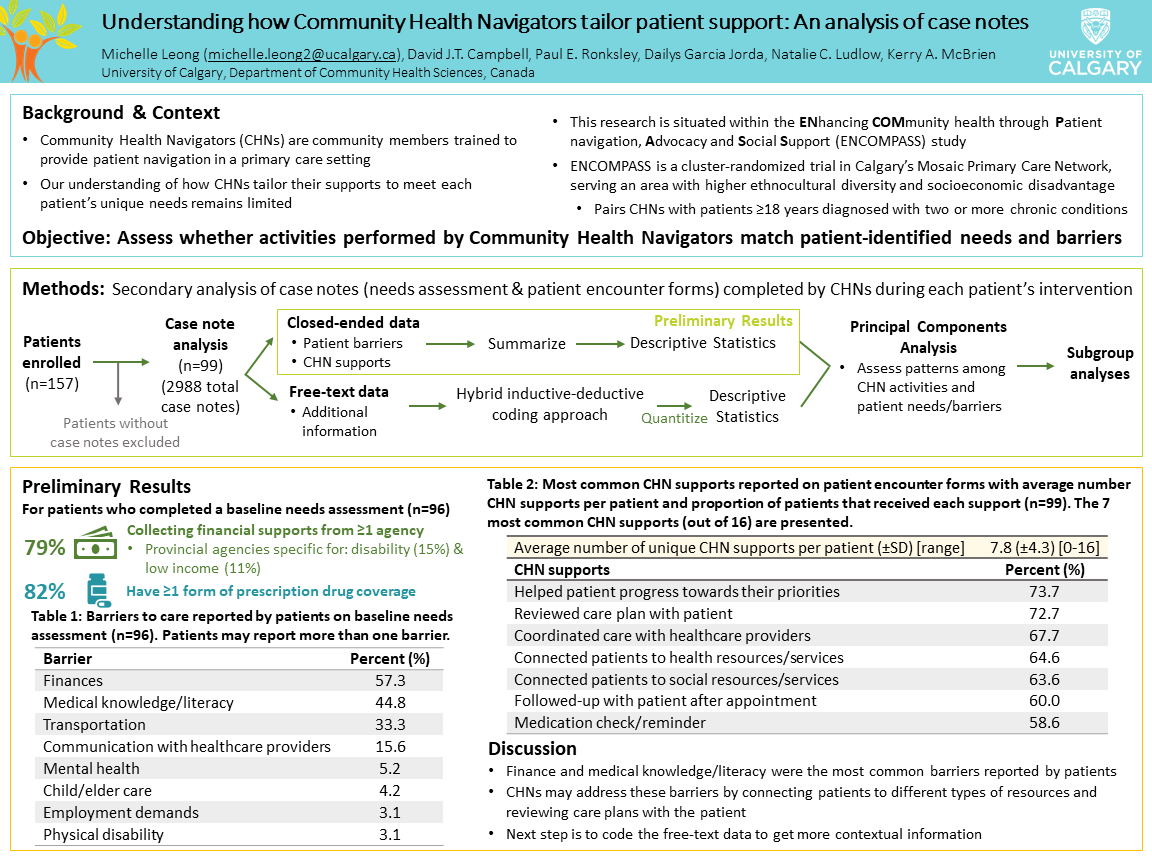SRFP111: Understanding how Community Health Navigators tailor patient support: An analysis of case notes
Michelle Leong, BHSc; David Campbell, MD, PhD, FRCPC, MSc; Paul Ronksley, PhD; Dailys Garcia-Jorda, PhD, MSc; Natalie C. Ludlow, PhD, MA; Kerry McBrien, MD, MPH
Context: Community Health Navigators (CHNs) are community members trained to provide patient navigation in a primary care setting. However, there is limited research to understand how care providers like CHNs can tailor these supports to meet the unique needs of their patients. ENhancing COMmunity health through Patient navigation, Advocacy and Social Support (ENCOMPASS) is a cluster-randomized trial that is testing an intervention in Calgary, Alberta that pairs CHNs with patients diagnosed with two or more chronic conditions. Objective: To assess whether activities performed by CHNs match patient-identified needs and barriers. Study Design: Secondary analysis of case notes completed by CHNs during each patient’s intervention period. Free-text data will be analyzed using a hybrid inductive-deductive approach informed by a program theory and codes will be quantitized into count data for analysis. Descriptive statistics on structured and quantitized data will be performed. A principal component analysis will be performed to explore how CHN activities vary according to patient needs and barriers. Setting: ENCOMPASS is a partnership with the Mosaic Primary Care Network, which serves an area in Calgary with higher proportions of immigrants and households with lower income. Population Studied: Patients must be greater than 18 years of age with at least two of: hypertension, diabetes, chronic kidney disease, ischemic heart disease, congestive heart failure, and chronic obstructive pulmonary disease or asthma. Currently, 149 patients are enrolled in the ENCOMPASS study. Case notes for all patients who began the program between February 1, 2018 and August 31, 2021 will be included. Anticipated Results: The analyses will summarize patient barriers and approaches commonly used by CHNs to address particular patient barriers. It is anticipated CHNs tailored their activities according to patient needs and barriers identified at the start of the intervention. Conclusion: It is unknown how CHNs address different patient needs. Case notes are a valuable data source that documents all CHN encounters with patients in detail. This study will provide important information to better understand the role of CHNs in a novel healthcare model for patients with multiple chronic conditions.

Jack Westfall
jwestfall@aafp.org 11/21/2021This is a very important topic and research study. Nice work. Thanks